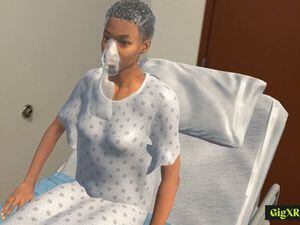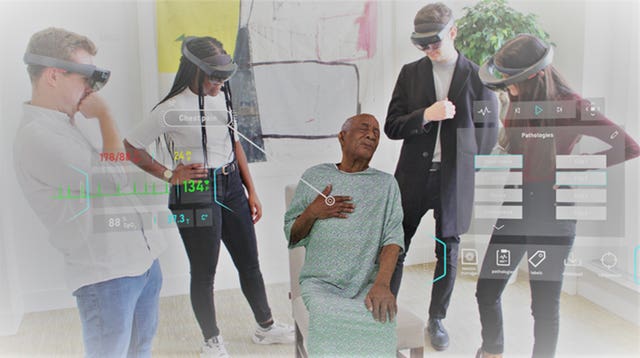UK medical students training on hologram patients in world-first
The students at Addenbrooke’s Hospital in Cambridge are using a new mix-reality training system called HoloScenarios.

Medical students in Cambridge are the first in the world to learn with holographic patients, the university has said.
The students at Addenbrooke’s Hospital are using a new mix-reality training system called HoloScenarios, which enables teaching and learning with life-like holograms, which are accessible from anywhere in the world.
The technology is being developed by Cambridge University Hospitals NHS Foundation Trust (CUH), the University of Cambridge and Los Angeles-based tech company GigXR.
Wearing mixed reality headsets, the students are able to see each other but are also interacting with a multi-layered, medically accurate holographic patient, the developers say.
Students will take several modules using the technology, the first of which focuses on respiratory conditions and emergencies.
This involves a holographic patient with asthma, followed by anaphylaxis, pulmonary embolism and pneumonia.
Other modules in cardiology and neurology are in development.
“As institutions scale procurement, the demand for platforms that offer utility and ease of mixed reality learning management is rapidly expanding.
“GigXR has already enabled instructors to better prepare learners with medically accurate simulation for observation and assessment.
“With HoloScenarios, we’re helping to evolve education from a mentorship-based model to one where students around the world can have equal access to top-flight expertise for mastering invention-based clinical skills.”

“Our first HoloScenarios module represents a new and incredibly powerful way to use mixed reality for healthcare training, to be followed up by many more modules and new applications delivered soon.”





